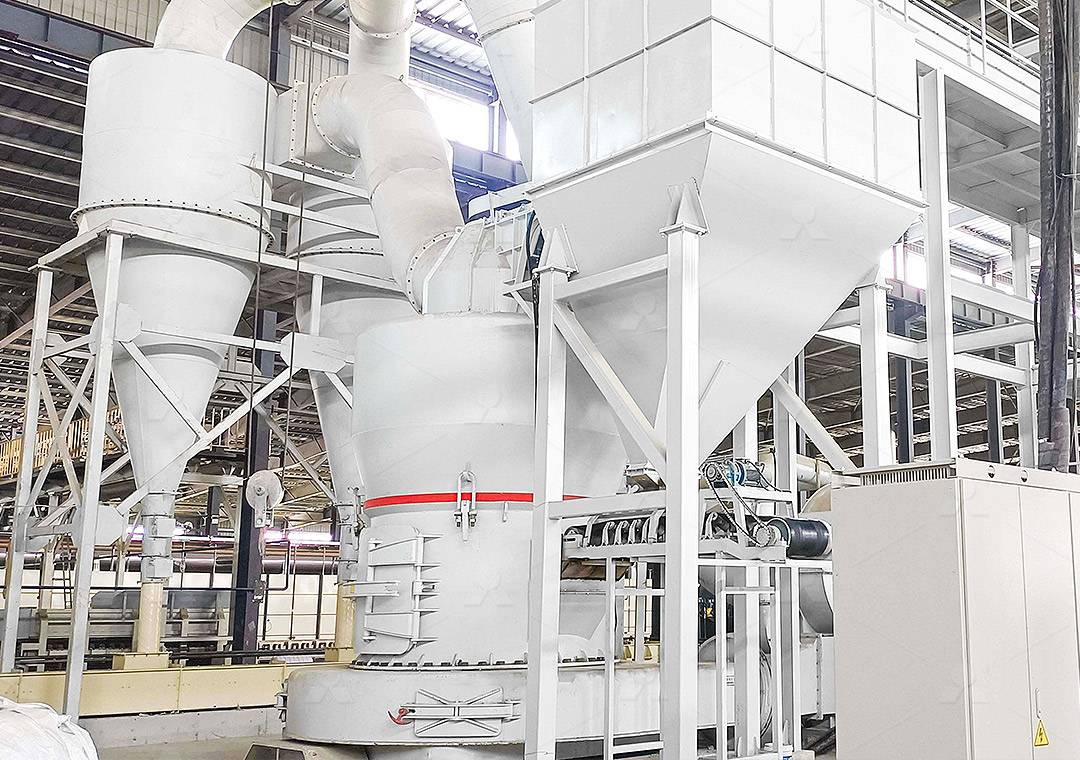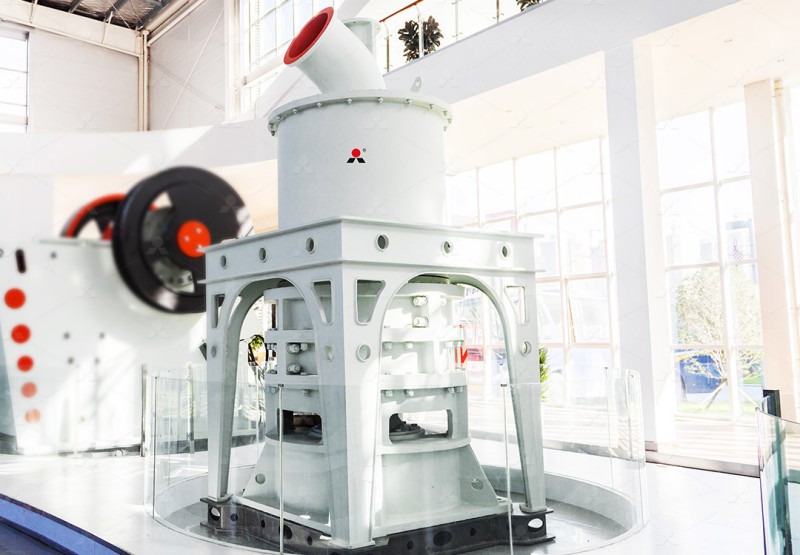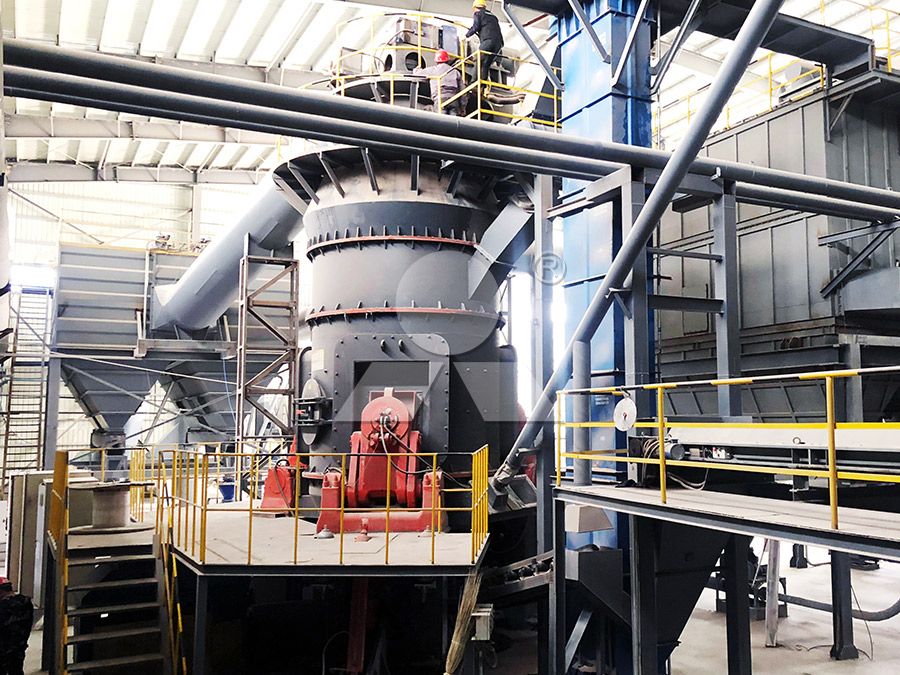Intelligent Control System for Coal Mills in Lime Kiln Applications
We provide a wide range of mills — including Raymond mill, trapezoidal mill, vertical mill, ultrafine mill, and ball mill, obtained ISO9001 international quality certification, EU CE certification, and Customs Union CU-TR certification. Suitable for processing minerals such as limestone, phosphate, quicklime, kaolin, talc, barite, bentonite, calcium carbonate, dolomite, coal, gypsum, clay, carbon black, slag, cement raw materials, cement clinker, and more.
The discharge range of these mills can be adjusted to meet specific processing needs, typically from 80-400 mesh, 600-3250 mesh, and can achieve the finest particle size of up to 6000 mesh(D50).
If you are looking for a reliable grinding solution to turn stone or minerals into fine powder, please feel free to contact our online customer service.
Intelligent Control System for Coal Mills in Lime Kiln Applications
In modern lime production facilities, maintaining precise control over coal grinding processes represents one of the most critical operational challenges. The efficiency of coal pulverization directly impacts fuel combustion quality, kiln temperature stability, and ultimately, product quality and operational costs. Traditional control methods often struggle with the variable nature of raw coal characteristics and the complex dynamics of grinding systems.

The integration of intelligent control systems has revolutionized coal mill operations in lime kiln applications. These sophisticated systems employ real-time monitoring, predictive analytics, and adaptive control algorithms to optimize grinding parameters continuously. By analyzing multiple variables simultaneously—including feed rate, grinding pressure, temperature, and particle size distribution—intelligent controllers can maintain optimal operating conditions despite fluctuations in coal quality or operational demands.
Optimizing Grinding Efficiency Through Advanced Technology
Modern intelligent control systems leverage machine learning algorithms that continuously improve their performance based on historical operational data. These systems can predict maintenance needs, detect abnormal operating conditions before they escalate into problems, and automatically adjust parameters to maintain consistent product quality. The result is significantly reduced energy consumption, extended equipment lifespan, and improved safety.
For operations requiring ultra-fine coal powder with precise particle size distribution, the MW Ultrafine Grinding Mill represents an ideal solution. With an input size capability of 0-20 mm and capacity ranging from 0.5-25 tph, this advanced mill system delivers exceptional performance for lime kiln applications. The MW Ultrafine Grinding Mill achieves adjustable fineness between 325-2500 meshes while consuming 30% less energy compared to conventional jet grinding mills. Its innovative design eliminates rolling bearings and screws in the grinding chamber, significantly reducing maintenance concerns and potential failure points.

Integrated Environmental Compliance
Contemporary lime production facilities face increasingly stringent environmental regulations, particularly regarding dust emissions and noise pollution. Intelligent control systems address these challenges through integrated environmental monitoring and control features. The MW Ultrafine Grinding Mill exemplifies this approach with its efficient pulse dust collector and muffler system, ensuring operations remain compliant with environmental standards while maintaining optimal production efficiency.
Another exceptional solution for operations requiring vertical grinding configuration is the LUM Ultrafine Vertical Grinding Mill. This system processes materials with input sizes up to 10 mm at capacities between 5-18 tph. The LUM mill incorporates double position-limiting technology that ensures operational stability even during unexpected vibration events, while its reversible structure simplifies maintenance procedures significantly.
Operational Benefits and Return on Investment
The implementation of intelligent control systems for coal mills typically delivers return on investment within 12-24 months through multiple channels: reduced energy consumption (30-50% savings compared to conventional systems), decreased maintenance costs, improved product consistency, and extended equipment lifespan. The digitalized processing and high-precision manufacturing of modern grinding mills ensure reliable performance and minimal downtime.

Advanced control systems also contribute to safer working environments through automated monitoring of critical parameters and early warning systems that alert operators to potential issues before they become hazardous. The comprehensive data collection capabilities provide valuable insights for continuous process improvement and operational optimization.
Frequently Asked Questions
What are the primary benefits of implementing an intelligent control system for coal mills in lime kiln applications?
Intelligent control systems deliver multiple benefits including 30-50% reduction in energy consumption, consistent product quality through real-time parameter adjustment, predictive maintenance capabilities that reduce unplanned downtime, improved operational safety, and automated compliance with environmental regulations.
How does the MW Ultrafine Grinding Mill achieve higher efficiency compared to traditional grinding systems?
The MW Ultrafine Grinding Mill incorporates newly designed grinding curves of grinding roller and grinding ring that enhance grinding efficiency by 40% compared to jet grinding mills. Its cage-type powder selector technology enables precise particle size control between 325-2500 meshes, while the elimination of rolling bearings and screws in the grinding chamber reduces maintenance requirements and potential failure points.
Can these intelligent systems adapt to variations in coal quality?
Yes, advanced control systems utilize adaptive algorithms that continuously monitor multiple parameters and automatically adjust grinding conditions to compensate for variations in coal characteristics. This ensures consistent product quality regardless of fluctuations in raw material properties.
What environmental advantages do modern coal grinding systems offer?
Contemporary systems like the MW Ultrafine Grinding Mill incorporate efficient pulse dust collectors that eliminate dust pollution during operation. Additionally, silencers and noise elimination rooms reduce operational noise, ensuring full compliance with national environmental protection standards.
How do these systems contribute to reduced maintenance costs?
Intelligent control systems minimize maintenance requirements through features like the MW Mill’s external lubrication system that enables lubrication without shutdown, and the LUM Mill’s reversible structure that allows easy access to grinding components. Predictive maintenance algorithms also help schedule maintenance activities proactively, reducing both downtime and repair costs.
